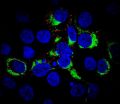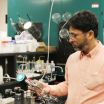(Press-News.org) Treating older men with early-stage prostate cancer who also have other serious underlying health problems with aggressive therapies such as surgery or radiation therapy does not help them live longer and, in fact, can be detrimental, according to a study by UCLA researchers.
The study followed the cases of more than 140,500 men aged 66 and older diagnosed with early-stage prostate cancer between 1991 and 2007 from the Surveillance, Epidemiology and End Results (SEER) Medicare database. Men who also suffered from multiple major medical conditions such as a history of heart attack, chronic obstructive pulmonary disease (COPD) and diabetes in combination did not live any longer after receiving aggressive therapy compared with men receiving no treatment. Additionally, these men were at risk for side effects such as impotence, urinary incontinence and bowel problems that can result from surgery and radiation treatments.
The research team used the Charlson index when looking at the men and their health problems. The index can be used to predict the 10-year mortality for a patient who may have a range of other health problems, called comorbid conditions. A prostate cancer patient with diabetes may score a 1 on the index, while a man with multiple or more severe health problems might score a 3 or higher.
The retrospective study, which followed the men for 15 years after diagnosis, found that prostate cancer patients with Charlson scores of 0, 1 or 2 who were treated with surgery or radiation therapy had a lower risk of dying of prostate cancer compared with men receiving no treatment. However, men with scores of 3 or higher did not have a reduction in risk of death from cancer with aggressive treatment because they did not live long enough to benefit from it and were more likely to die from something else, said study first author Timothy Daskivich, a UCLA Robert Wood Johnson fellow.
The study appears in the May 13, 2014 early online edition of the peer-reviewed journal Cancer.
"In the past, we've relied on the basic argument that older and sicker men are much more likely to die of other things besides their prostate cancer that exposing them to aggressive treatment and its debilitating side effects is a poor gamble," Daskivich said. "Now we've shown that aggressive treatment of these men is ineffective. This information will help these men better maximize the quality of their remaining years."
Daskivich said that prostate cancer patients who have several comorbid conditions could use these findings to decide whether or not to treat their disease.
"These findings will also benefit the doctors who are trying to counsel these men on whether or not they should receive treatment," he said. "The guidelines suggest the men with life expectancies of less than 10 years shouldn't be treated aggressively, but life expectancy is difficult to measure accurately. This data clearly defines a subset of patients who should avoid therapies that will only cause them problems they don't already have."
Prostate cancer is the most frequently diagnosed cancer in men aside from skin cancer. An estimated 233,000 new cases of prostate cancer will occur in the United States in 2014. Of those, nearly 30,000 men will die. For reasons that remain unclear, incidence rates are about 60%
higher in African Americans.
"Aggressive treatment of men with multiple major comorbidities poses both an unnecessary health hazard to these men and an undue burden on our overtaxed health care system," the study states. "Because all aggressive local treatments for prostate cancer may confer side effects that can substantially affect quality of life, aggressive treatment of men who are unlikely to benefit often creates new health problems – impotence, urinary incontinence, bowel dysfunction – while not achieving the primary objective of increasing cancer-specific survival."
INFORMATION:
The study was supported by the National Institutes of Diabetes and Digestive and Kidney Diseases (HHSN276201200016C 0, American Cancer Society (124225-PF-13-014-CPHPS), and the Urology Care Foundation.
For more than 50 years, the urology specialists at UCLA have continued to break new ground and set the standards of care for patients suffering from urological conditions. In collaboration with research scientists, UCLA's internationally renowned physicians are pioneering new, less invasive methods of delivering care that are more effective and less costly. UCLA's is one of only a handful of urology programs in the country that offer kidney and pancreas transplantation. In July of 2013, UCLA Urology was once again ranked fourth in the nation by U.S. News & World Report, a ranking it has held for the last 15 years. For more information, visit http://urology.ucla.edu/.
Older, sicker men with early-stage prostate cancer do not benefit from aggressive treatment
Treatments may result in additional health issues
2014-05-13
ELSE PRESS RELEASES FROM THIS DATE:
Study: Former prisoners, parolees turn to emergency departments for care
2014-05-12
AURORA, Colo. (May 12, 2014) – Being released from prison or jail is a difficult time for the millions of Americans returning to their communities from correctional facilities. Add to the list of challenges a high risk of winding up in the emergency department or the hospital. That's according to a new study from the University of Colorado School of Medicine.
The study, published in the Journal of General Internal Medicine, provides support for efforts to improve access to insurance and readily available health care for this vulnerable group.
"This study comes at a ...
Researchers find new molecule to treat asthma
2014-05-12
La Jolla, Calif., May 12, 2014 -- A new study carried out by researchers at Sanford-Burnham Medical Research Institute (Sanford-Burnham), the Max Planck Institute for Colloids and Interfaces (Germany), the Free University of Berlin (Germany), UC San Diego, and Shinshu University (Japan) has identified a novel molecule that prevents T-cells from orchestrating asthma brought on by allergens. The findings, published on May 12 in Proceedings of the National Academy of Sciences (PNAS), show promise for a new potent therapeutic agent to treat asthma, a chronic disease affecting ...
JAX researchers identify potential therapeutic target for wound-healing and cancer
2014-05-12
A Jackson Laboratory research team led by Professor Lenny Shultz, Ph.D., reports that a protein involved in wound healing and tumor growth could be a potential therapeutic target.
In one of nature's mixed blessings, the mechanisms that work to heal cuts and wounds, rebuilding damaged cells, can also go out of control and cause cancer. But understanding those mechanisms could lead to new ways of stimulating healing in wound patients and dialing back cancerous proliferation.
An inactive rhomboid protease, iRhom2, is normally a short-lived protein that controls a cascade ...
Airborne radar surveys and data-based models indicate West Antarctic Ice Sheet collapse is underway
2014-05-12
National Science Foundation- (NSF) funded researchers at the University of Washington have concluded that Antarctica's fast-moving Thwaites Glacier will likely disappear in a matter of centuries, potentially raising sea level by more than a half-a-meter (two feet).
Data gathered by NSF-funded airborne radar, detailed topography maps and computer modeling was used to make the determination.
The glacier acts as an ice dam, stabilizing and regulating movement toward the sea of the massive West Antarctic Ice Sheet. The ice sheet contains enough ice to cause another 3 to ...
Henry Ford researchers identify genetic factors that may aid survival from brain cancer
2014-05-12
DETROIT – A Henry Ford Hospital research team has identified specific genes that may lead to improved survival of glioblastoma, the most common and deadly form of cancerous brain tumor.
The molecular data is expected to aid further research into genes that either help or impede the survival of patients diagnosed with the tumor, which can invade and rapidly grow in any part of the human brain.
"Studies such as ours that help define molecular alterations associated with short-term survival likely will help define the reasons why our current treatments don't succeed in these ...
Researchers find a new gene expression mechanism of PRRS virus
2014-05-12
MANHATTAN, Kan. — A collaborative study involving Kansas State University researchers has discovered a new gene expression mechanism in porcine reproductive and respiratory syndrome, or PRRS, virus — an important swine pathogen that costs the U.S. pork industry more than $600 million a year. The discovery provides a new avenue for scientists to explore strategies to control and prevent the disease.
Ying Fang, Ph.D., associate professor of diagnostic medicine and pathobiology at Kansas State University, led a study that looked at the unique gene expression mechanism of ...
Hospitals ranked on complications after hip and knee replacement surgeries
2014-05-12
With an aging population comes an increase in hip and knee joint replacement surgeries, totaling almost one million procedures per year in the United States. To provide better information on the outcomes of these surgeries, help inform patient choice, and improve the quality of the nation's hospitals, a team of Yale School of Medicine researchers have developed a measure for hospitals based on the complications following their patients' hip and knee replacements.
The team published an article in the May issue of the Journal of Bone and Joint Surgery showing there are ...
Dartmouth scientists identify genetic blueprint for cancerous tumors of the appendix
2014-05-12
Using next generation DNA sequencing, Dartmouth scientists have identified potentially actionable mutations in cancers of the appendix. Their study, "Molecular Profiling of Appendiceal Epithelial Tumors Using Massively Parallel Sequencing to Identify Somatic Mutations," was published in the journal Clinical Chemistry today. When specific mutations for a cancer type are identified, patients can be treated with chemotherapy or other targeted agents that work on those mutations.
Little is known about the molecular biology of two types of appendix tumors, low-grade appendiceal ...
Ames Lab creates multifunctional nanoparticles for cheaper, cleaner biofuel
2014-05-12
The U.S. Department of Energy's Ames Laboratory has created a faster, cleaner biofuel refining technology that not only combines processes, it uses widely available materials to reduce costs.
Ames Laboratory scientists have developed a nanoparticle that is able to perform two processing functions at once for the production of green diesel, an alternative fuel created from the hydrogenation of oils from renewable feedstocks like algae.
The method is a departure from the established process of producing biodiesel, which is accomplished by reacting fats and oils with alcohols.
"Conventionally, ...
Mount Sinai researchers identify changes that may occur in neural circuits due to addiction
2014-05-12
A research team from the Friedman Brain Institute of the Icahn School of Medicine at Mount Sinai has published evidence that shows that subtle changes of inhibitory signaling in the reward pathway can change how animals respond to drugs such as cocaine. This is the first study to demonstrate the critical links between the levels of the trafficking protein, the potassium channels' effect on neuronal activity and a mouse's response to cocaine. Results from the study are published in the peer-reviewed journal Neuron on May 7, 2014.
The authors investigated the role of ...
LAST 30 PRESS RELEASES:
New knowledge on heritability paves the way for better treatment of people with chronic inflammatory bowel disease
Under the Lens: Microbiologists Nicola Holden and Gil Domingue weigh in on the raw milk debate
Science reveals why you can’t resist a snack – even when you’re full
Kidney cancer study finds belzutifan plus pembrolizumab post-surgery helps patients at high risk for relapse stay cancer-free longer
Alkali cation effects in electrochemical carbon dioxide reduction
Test platforms for charging wireless cars now fit on a bench
$3 million NIH grant funds national study of Medicare Advantage’s benefit expansion into social supports
Amplified Sciences achieves CAP accreditation for cutting-edge diagnostic lab
Fred Hutch announces 12 recipients of the annual Harold M. Weintraub Graduate Student Award
Native forest litter helps rebuild soil life in post-mining landscapes
Mountain soils in arid regions may emit more greenhouse gas as climate shifts, new study finds
Pairing biochar with other soil amendments could unlock stronger gains in soil health
Why do we get a skip in our step when we’re happy? Thank dopamine
UC Irvine scientists uncover cellular mechanism behind muscle repair
Platform to map living brain noninvasively takes next big step
Stress-testing the Cascadia Subduction Zone reveals variability that could impact how earthquakes spread
We may be underestimating the true carbon cost of northern wildfires
Blood test predicts which bladder cancer patients may safely skip surgery
Kennesaw State's Vijay Anand honored as National Academy of Inventors Senior Member
Recovery from whaling reveals the role of age in Humpback reproduction
Can the canny tick help prevent disease like MS and cancer?
Newcomer children show lower rates of emergency department use for non‑urgent conditions, study finds
Cognitive and neuropsychiatric function in former American football players
From trash to climate tech: rubber gloves find new life as carbon capturers materials
A step towards needed treatments for hantaviruses in new molecular map
Boys are more motivated, while girls are more compassionate?
Study identifies opposing roles for IL6 and IL6R in long-term mortality
AI accurately spots medical disorder from privacy-conscious hand images
Transient Pauli blocking for broadband ultrafast optical switching
Political polarization can spur CO2 emissions, stymie climate action
[Press-News.org] Older, sicker men with early-stage prostate cancer do not benefit from aggressive treatmentTreatments may result in additional health issues



